SUMMARY
This is AI generated summarization, which may have errors. For context, always refer to the full article.

The Philippine Red Cross (PRC) may be forced to stop conducting COVID-19 swab tests in Metro Manila if the Philippine Health Insurance Corporation (PhilHealth) does not reimburse some P700 million it owes the organization, Senator Richard Gordon said on Monday, August 17.
Gordon is the chairperson of the PRC.
“If they do not pay in about a week, it will go to P1 billion, and we cannot afford that because we are trying to replenish our stocks from China,” Gordon said in an interview with CNN Philippines.
The PRC has a pending order of about 400 million COVID-19 swab test kits worth $6 million from its supplier in China. The non-governmental organization will be unable to pay for the order without the reimbursement it expects from the government.
“So we’re holding that, and definitely we have to stop [testing] until we get a replenishment of funds,” Gordon said. “We cannot give something that we don’t have.”
He also described how difficult it has been for the PRC to follow up on PhilHealth’s delayed payments, saying, “It’s been like pulling teeth with them.”
The PRC has been the government’s partner in conducting COVID-19 swab tests on returning overseas Filipinos and government frontliners responding to the pandemic. Gordon said the group has tested more than 100,000 repatriated overseas Filipino workers (OFWs) and “multiple thousands” of local government personnel since it started helping out in the government’s pandemic response.
It was the government that had asked for the PRC’s help in testing the population for the novel coronavirus, Gordon noted.
The initial arrangement was the government would give the PRC an initial P100 million, which it would keep replenishing so the group can keep running free swab tests.
“But after the first hundred million, iba na (it changed). They did not want to pay us. They did not want to replenish, so we ended up having to go out there. It’s very demeaning na magla-lobby ka (to have to lobby),” Gordon said.
It has taken PhilHealth an average of 8.2 days to pay the PRC’s bills, he added. At one point, the reimbursement took 26 days to be paid.
“Last week, we were almost not able to continue because we had to wait until we were paid P120 million to be able to deliver about 230,000 test kits,” the senator said.
Speculating on what could be PhilHealth’s reason for delaying payment, Gordon said there is no reason to suspect the PRC of “cheating.” All the work was done in partnership with government agencies such as the Philippine Coast Guard and local government units. PhilHealth can easily cross-check the PRC’s bills with these agencies.
Gordon said he even invited PhilHealth to send watchers to its testing facilities. “Baka sabihin ‘nyo, niloloko namin kayo. Hindi sila naglalagay ng bantay (You might say we’re fooling you. They didn’t put watchers). They didn’t care.”
The PRC conducts 10,000 to 12,000 COVID-19 swab tests daily, but its full capacity is 52,000 tests per day, Gordon said. Tests carried out by the PRC make up 25% of the country’s total COVID-19 tests, he added.
Besides the government-sponsored tests, the PRC also welcomes walk-ins. For them, a COVID-19 test costs P4,000, Gordon said.
“Kung titigil kami, sino ang magte-test? Marami pa ring magte-test, pero babagal lalo iyan (If we stop, then who will test? There are still many who will test, but it will be even slower),” the senator and PRC chief added.
In a statement on Monday evening, PhilHealth said it has paid the PRC a total of P504.2 million as of August 12 to cover 115,500 RT-PCR swab tests the group has conducted. This took up more than half of the P910 limit set by the PhilHealth Board of Directors in May, the state insurer added.
PhilHealth said it received 3 billing statements from the PRC on August 13, 14, and 15 amounting to a total of P714.6 million.
“These will be processed in accordance to the imposed limit subject to additional allocation as may be approved by the Board,” PhilHealth said.
The Bayanihan to Heal as One Act, which lapsed on June 5, stated that the PRC, “as the primary humanitarian agency that is auxiliary to the government in giving aid to the people,” would be paid back by the government for the cost of goods and services it delivers in fighting the pandemic. The succeeding Bayanihan to Recover as One Act, yet to be ratified by Congress, also contains this provision.
Beset by allegations of rampant corruption, PhilHealth is currently under investigation by several government agencies, including the Department of Justice, the Office of the Ombudsman, and both chambers of Congress. These investigations revealed that billions of pesos are lost every year due to fraud and other irregularities in the state health insurer. – Rappler.com
Add a comment
How does this make you feel?
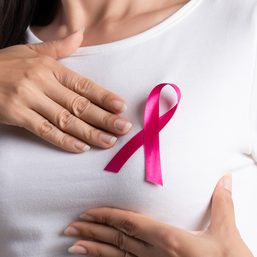
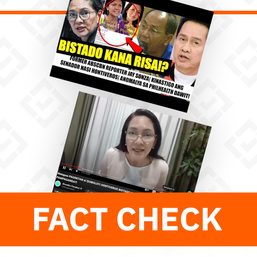

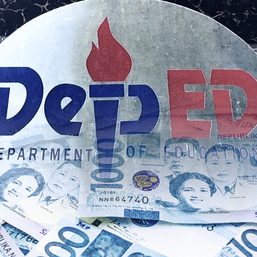
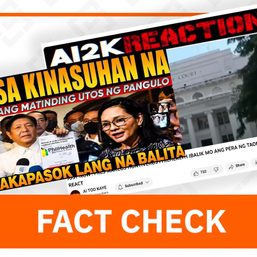

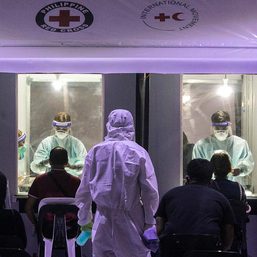
![[OPINION] The need to scrutinize the Philippine Red Cross](https://www.rappler.com/tachyon/2021/10/imho-redcross-sq.jpg?resize=257%2C257&crop_strategy=attention)
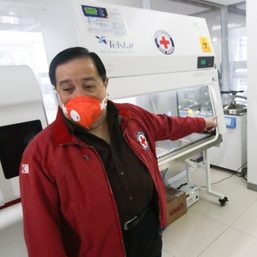
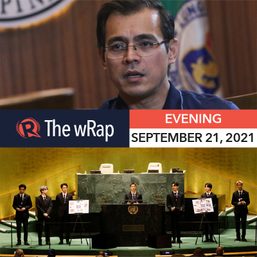
There are no comments yet. Add your comment to start the conversation.